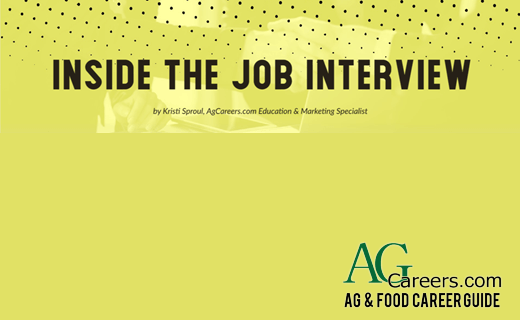- Candidates
- Login
- Set Up Account
- Create a Job Alert
- Search Tools
- Resources
- Employers

Inside the Job Interview
Without question one of the most unnerving parts of the job seeking journey is the interview. For most, it’s the uncertainty of what to expect during the interview that gives them the jitters. Interview types can vary by employer and even with all the practice questions available, there’s no way to know exactly what to expect.
You’ve likely heard the standard advice to arrive early, come prepared with questions and highlight your experiences. While these tips are certainly on point, we wanted to dig deeper by getting insight from employers about how they score interviews. How much does experience really matter, what are red flags and what makes an interview exceptional were just a few of the topics we wanted to cover.
To get the inside scoop on job interviews we reached out to Julie Venierakis, Senior Director of Human Resources and General Services for Valent U.S.A and Dustin DeVries, Senior Manager of Talent Acquisition for Zoetis. Julie has been involved with hiring new talent for over 20 years!
Dustin accepted his current role at Zoetis in 2017 and has over 17 years’ experience of managing employees and seeking out top talent. Julie and Dustin both have an incredible perspective on the interview process, warranting job seekers the opportunity to learn a lot from reading their advice.
What do you notice first when meeting an interview candidate?
Julie: Initially, we notice if the candidate has arrived on time, maintains eye contact, openness, if they are smiling and engaged.
Dustin: The first thing I notice is the candidate’s attention to detail. A candidate who arrives early and has followed the details outlined in the interview confirmation creates a positive first impression. The second thing that I notice is the delivery of the candidate’s initial introduction, to not only the interviewer(s), but to other staff they encounter during their time in the office. When a candidate seizes every opportunity to genuinely make a new connection, they stand out from the crowd.
Takeaway: Arrive early, follow instructions and strive to make connections.
If the candidate has previously submitted their resume electronically, do you expect them to bring a printed copy to the interview?
Julie: No, not really, but I do expect that the candidate completes an application if provided prior to the interview. Providing reference information is also important.
Dustin: Yes. When candidates bring fresh copies of their resume and provide it to the interviewer without being prompted, it demonstrates that they have proactively prepared for the meeting.
Takeaway: It doesn’t hurt to be best prepared, so bring printed copies.
Do you expect the candidate to shake the hand of each interviewer?
Julie: Absolutely.
Dustin: Candidates who take the time upfront to acknowledge each interviewer with a handshake and a brief “thank you” for their time will always differentiate themselves. However, sometimes this can be logistically difficult given the room set-up. In instances like this, a brief statement of thanks works just as well.
Takeaway: Make the effort to shake everyone’s hand if the room set-up allows.

During the interview how can recent college graduates distinguish themselves from several other candidates who may also have a long list of campus involvement, but a shorter list of practical job experience?
Julie: If the candidate can explain examples of the application of skills learned in school or specific classes and leadership roles that directly link to the job opportunity. Also, we look for candidates that can demonstrate strong soft skills, relationship building, teaming with others, leading projects, working with teams from diverse cultures, ages, countries, etc.
Dustin: Recent college graduates who focus on their relative accomplishments and specifically, how they achieved those accomplishments, rather than just sharing a list of activities, always stand out. It’s critical that candidates are prepared to share specific situations, the actions they took while navigating the situation and then ultimately, the outcome of their actions. The more specific a candidate can be in describing his or her experience, the more memorable they will be to the interviewers.
Takeaway: Provide specific examples when explaining your experiences.
What type of responses from the candidate are red flags to you?
Julie: If the candidate’s resume or application notes a specific skill or competency and when asked to share an example of this skill or competency and the candidate is unable to explain and or provide an example to support the information.
Dustin: A red flag to me is when a candidate is asked to give a specific example, but instead provides a hypothetical response. Additionally, responses that lack depth or specifics regarding accomplishments/outcomes are always a red flag.
Takeaway: Provide specific examples when explaining your experiences (sound familiar?).
What question do you wish candidates would ask more often in interviews?
Julie: I recommend asking more questions about a typical day in the office and to ask about the company culture and work team. I also think it would be a good idea to understand what is expected in the first 30, 60, and 90 days. It also helps the candidate to understand expectations by asking what would be considered an “outstanding employee”.
Dustin: Candidates that have networked and researched, both internally with current employees as well as externally within the industry, will separate themselves from other candidates. Those that can share insights gained during their research, and then ask the interviewers for their perspective on those insights, create a positive exchange of information during the interview which is valuable for both employer and candidate. Candidates that are able to ask relevant questions which show the work they’ve already put into learning about the position, the company, the industry and the customers will always learn more during the interview and the interviewer will learn more about them.
Takeaway: Don’t miss out on the opportunity to learn more about the organization and the specific role, while also showing the interviewer that you’ve done your homework.
How much emphasis do you place on candidate’s post-interview follow-up?
Julie: It is critical to immediately write a thank you note and follow up within the next few days. It is also important to share why they want the job and emphasize the skills and competencies that align with the role.
Dustin: Candidate follow-up is important. It provides a glimpse into how the candidate may behave as an employee, both with internal stakeholders and with customers and vendors. Candidates who follow-up throughout the interview process always make a good impression.
Takeaway: Make post-interview follow-up a priority.
Try to recall the best interview you’ve been a part of. What made this candidate interview exceptional?
Julie: Some of the most exceptional candidate interview experiences that I have observed include the candidate’s ability to provide recent examples of experience, education or projects that meet the qualifications of the role. Candidates that provide succinct and honest responses to questions. Candidates that describe their ability to navigate change, resolve technical challenges and help others.
Dustin: I’ve had the privilege of participating in many high-quality interviews over the past 17 years. The most exceptional candidates did the following things; took the initiative to prepare for the interview, which created a strong two-way dialogue, listened carefully to the hiring manager’s questions and shared specific details of their experiences that were meaningful and relevant to the role they applied for, identified hiring manager’s needs as they asked questions and then tailored their responses to show how they could bring value to the position and the organization, proactively asked the hiring manager what the next steps were in the interview process, and expressed their sincere interest in the role and followed-up that day with individual notes to each interviewer.
Takeaway: Relate your specific experiences to the role which you’re interviewing for. Also, describe how your employability (soft) skills will add value to the organization.
As you prepare for your next interview, review this article and determine how you will be able to deliver on Julie and Dustin’s advice!